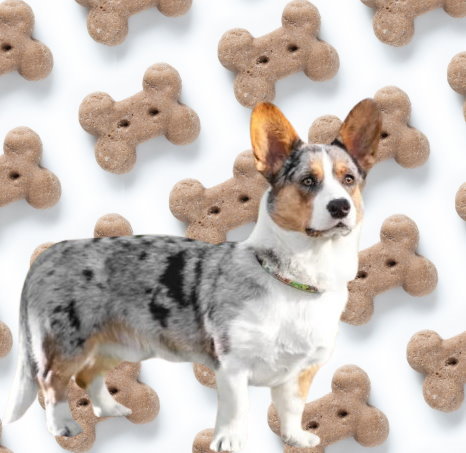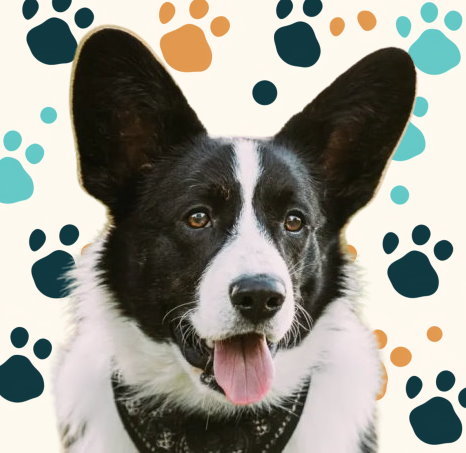Welcome to Dog Training Newbies !
Welcome to Dog Training Newbies !

Bringing home a Corgi puppy is an exciting and joyful experience. These adorable and intelligent dogs are known for their short legs, big personalities, and boundless energy. If you're a proud new owner of a Corgi puppy, it's important to start their training and socialization early on. In this article, we will explore some essential training and socialization tips to help you raise a well-behaved and happy Corgi companion.
BEGIN TRAINING FROM DAY ONE
Training your Corgi puppy should start as soon as you bring them home. Consistency and positive reinforcement are key elements in their training process. Begin with basic commands such as sit, stay, come, and down. Use treats, praise, and rewards to encourage and motivate your puppy during training sessions.
Keep training sessions short and frequent to maintain their focus and prevent boredom. Corgis are intelligent dogs, but they can also have a stubborn streak, so patience and persistence are important. Remember to be firm, yet gentle, and avoid using harsh training methods that may harm the bond between you and your puppy.
SOCIALIZATION IS CRUCIAL
Socializing your Corgi puppy is essential for their overall development and well-being. Expose them to a variety of people, animals, sounds, and environments from an early age. This exposure helps them become confident, well-adjusted dogs who are comfortable in different situations.
Take your Corgi puppy on regular outings to meet new people and interact with other dogs. Arrange playdates with well-behaved and vaccinated dogs to provide positive social experiences. Encourage calm and friendly behavior, and reward your puppy for their good manners.
Introduce your Corgi puppy to different environments such as parks, busy streets, and pet-friendly stores. This exposure will help them become accustomed to various sights, sounds, and smells. Gradually increase the level of difficulty, exposing them to increasingly stimulating environments as they grow older.
LEASH TRAINING AND RECALL
Leash training is an important aspect of Corgi puppy training. Start by getting your puppy used to wearing a collar or harness and introduce them to the sensation of being on a leash. Begin training indoors or in a secure, fenced area with minimal distractions.
Teach your Corgi puppy to walk beside you without pulling on the leash. Use positive reinforcement techniques, rewarding them for walking nicely by your side. As they progress, gradually introduce them to more distracting environments and work on their leash manners in real-world situations.
Additionally, teaching your Corgi puppy a reliable recall command is crucial for their safety. Start in a controlled environment and call their name followed by a positive reinforcement reward, like a treat or praise. Practice the recall command regularly in different locations, gradually increasing the level of distractions.


CRATE TRAINING FOR COMFORT AND SECURITY
Crate training can provide your Corgi puppy with a safe and comfortable space of their own. Introduce the crate as a positive and inviting place by placing treats, toys, and a cozy bed inside. Encourage your puppy to explore the crate at their own pace.
Use positive reinforcement to associate the crate with positive experiences. Feed your puppy inside the crate and provide treats when they enter voluntarily. Gradually increase the duration of time your puppy spends in the crate, making sure to let them out for regular potty breaks and playtime.
Crate training not only helps with house training but also gives your Corgi puppy a sense of security and a designated space to retreat to when they need some downtime.
PATIENCE, CONSISTENCY, AND POSITIVE REINFORCEMENT
Patience, consistency, and positive reinforcement are three crucial elements in raising a well-behaved Corgi puppy. Remember that each puppy is unique and may progress at their own pace. Stay calm and composed during training sessions, and avoid getting frustrated or resorting to punishment.
Consistency in your training methods and expectations is important for your Corgi puppy to understand what is expected of them. Make sure all family members are on the same page when it comes to training techniques and commands. This consistency will help your puppy learn faster and avoid confusion.
Always use positive reinforcement to reward good behavior and redirect undesirable behaviors. Corgis respond well to praise, treats, and affection, so use these rewards to reinforce their positive actions. This positive approach will strengthen the bond between you and your Corgi puppy.
In conclusion, raising a Corgi puppy requires early training and socialization to ensure they grow into well-behaved and balanced dogs. Start training from day one, focusing on basic commands, leash training, and recall. Socialize your puppy extensively, exposing them to various people, animals, and environments. Remember to be patient, consistent, and use positive reinforcement techniques to create a positive learning experience for your Corgi puppy. With proper training and socialization, you'll set the foundation for a lifetime of companionship and happiness with your Corgi companion.